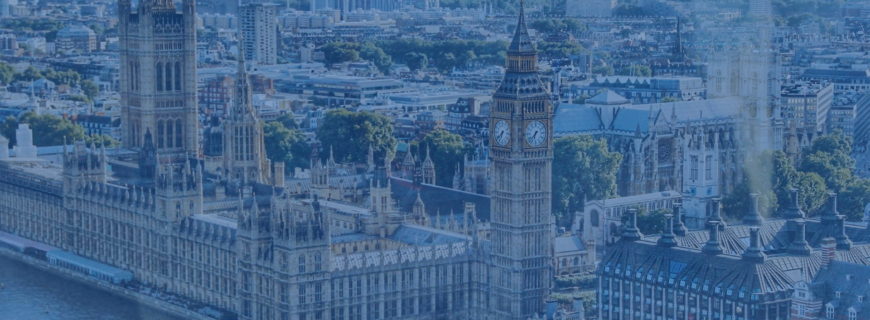Inflation has been in the news over the last couple of years, rising to double digits in the UK before turning down towards (hopefully) more manageable levels. This has prompted many people to consider the impact of inflation on their finances and whether they can protect their assets and investments in the future.
In this article, we will look at the impact of inflation on your finances, which is generally seen as unfavourable but, on occasion, can be positive.
What is inflation?
Inflation, in its simplest form, is a measure of the increase in the price of goods and services over a predefined period, typically 12 months. The inflation figures released by the Office for National Statistics (ONS) are calculated on a typical basket of goods/services reflecting current consumer trends.
Putting inflation into context
To put inflation into context, the Bank of England has a target inflation rate of around 2%, with which it is relatively comfortable. So, the double-digit rates of recent times were well in advance of this rate, hence the 14 consecutive increases in base rates. This made debt more expensive, cooling consumer demand and, eventually, bringing inflation down. There were untypical additional external factors, such as the increase in energy costs, due to the Ukraine/Russia war, but this is not a regular event.
How might inflation impact your finances?
There are numerous ways in which inflation can impact your finances and, over time, significantly weaken your relative wealth.
Reduced spending power
For many people, reduced spending power has a significant impact on their finances and their everyday lives. This is best demonstrated using a simple example; zero increase in your salary/household income against annual inflation of 10%.
Starting point
Monthly shopping budget: £300
Monthly shopping total: £300
After one year
Monthly shopping budget: £300
Monthly shopping total: £330
Shortfall: £30
While unlikely, if this were to continue for five years, the situation would be as follows:-
After five years
Monthly shopping budget: £300
Monthly shopping total: £483
Shortfall: £183
So, the cost of the same shopping would increase from £300 a month up to £483 if there was 10% annual inflation for five years. If there were no increase in your income, there would be a significant shortfall, forcing you to cut back on shopping and other areas of your everyday life.
Savings
Typically, savings rates tend to lag inflation as base rates are the primary tool central banks use to manage inflation. While there is no hard and fast rule, the rate on instant access savings accounts tends to be less than inflation. This means that, in a similar fashion to purchasing power, the actual value of your savings is decreasing year-on-year.
Banks and building societies also offer fixed rate terms for a predetermined time, which tend to be much more than instant access savings rates. This provides the chance to reduce the impact of inflation and, in some cases, even allow you to maintain or increase your spending power. In essence, if savings rates are below inflation, then the real value of your savings is going down, and vice versa.
Borrowings
Typical borrowings include credit cards and overdrafts, which tend to work on variable interest rates linked to base rates linked to inflation. So, in periods of high inflation, you will likely see relatively high borrowing costs. The situation is more complicated when you have an existing fixed-rate loan.
In times of prosperity, wage inflation tends to be relatively high compared to inflation while relatively low in more challenging times. Assuming that your income increases in line with inflation each year and, initially, 20% of your income goes towards debt repayments on fixed rates, the impact may be the exact opposite of what you might expect.
Start point
Income: £20,000 per annum
Debt repayments: £4000 (20% of income)
If we assume that your income increases by 5% per annum (in line with inflation), with debt repayments fixed, then after year one, this is the situation:-
Year one
Income: £21,000 per annum
Debt repayments: £4000 (19%)
The situation after year five is as follows:-
Income: £25,525 per annum
Debt repayments: £4000 (15.6%)
In real terms, the cost of debt repayments is constant, and therefore, after considering inflation, it is reducing in real terms.
Investments
Controlled inflation allows companies to introduce relatively modest price increases and adopt an affordable wage inflation strategy. Where inflation is high, this will increase the cost of running a business and put more upward pressure on wage inflation. In basic terms, this tends to feed into the bottom line, reducing profitability, increasing unemployment and, ultimately, the value of a company’s shares.
On the flip side, if inflation is relatively high, interest rates will follow, as will those available on fixed interest instruments such as gilts. The impact of inflation on investments is simple in theory but often complex in practice. Therefore, it’s essential to take guidance from your financial adviser.
Summary
Controlled inflation allows companies, governments and individuals to maintain relative spending power. While rare, negative inflation can be even more damaging than high inflation on economies, companies and the income of individuals.
There are ways and means of combating a reduction in spending power, such as tax-efficient investments and, where applicable, maximising your pension contributions (with a tax rebate from the government). It is essential to look at the broader issues when considering the impact of inflation on your finances. If you want to discuss your situation in more detail, please get in touch with me, and we can look at the options.
